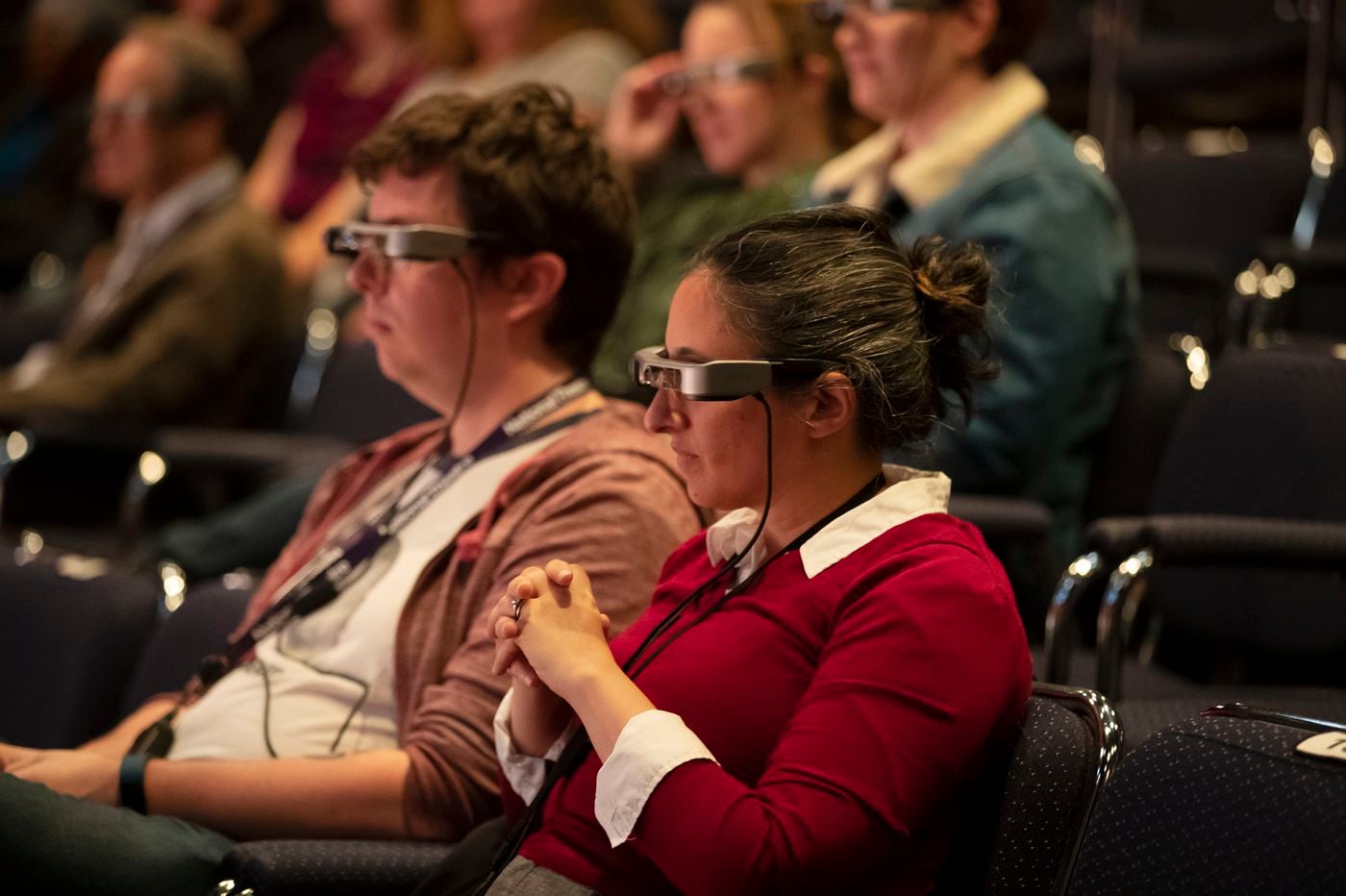www.inquirer.com: Deaf in one ear and significantly hard of hearing in the other, Cheryl Johnson does not go to the theater unless she gets great seats.
Understanding the actors is a perennial struggle even from up close. And if another audience member coughs or opens a crinkly bag of chips, forget it.

2 comments:
This! Is! Awesome! What an amazing and accommodating piece of technology! This article really highlights the brilliant positives to these captioning glasses: they are personal and discrete to the user, the words are well placed to where the user needs them, they can be cued with the action or technical aspects happening, and they make the audience member feel like they can be like any other audience member. While I cannot imagine how amazing this must be for those who are hard of hearing, I agree with the author that I can see this product also be appealing for non hard of hearing folks as well. I have trouble understanding people if I cannot see their face, which can make it hard for me if a performer has their back to me, or if I am super far away from the stage. The only struggle I see in this technology being implemented regularly across theatres is the price tag. At $1200 for a pair of these glasses, I can see smaller theatres or those who are pinching pennies in their budgets turning their noses up at getting a reasonably sized set of these glasses in their venue. However, I think that this would be a lovely idea for a capital campaign at any theatre company or venue.
I am absolutely astounded by this. For a community that outwardly gives the impression of inclusivity I am always surprised by the ableism that takes place in almost any performance. I hadn't started thinking about this until I went to see the CMU school of music opera Rinaldo and the projector with the translations malfunctioned half way through the first act! Though we could see the actors and hear the tones of the music, we ally really had no idea what was going on. I actually saw some people leave because they were so frustrated. Obviously this issue is not on the same level, but it definitely gave me a glimpse into what it would be like to be deaf and trying to enjoy theater. Accessibility is just something that falls to the wayside when people are planning a performance because without someone who is bringing those issues to the creative team they often forget that there are people who might like to see their show and experience the world of theater that often feel left out. The invention of these glasses is definitely taking things in the right direction because it allows deaf people to watch a show and process the dialogue at the same time, but I think that this is also a really good reminder for all theatrical designers and technicians that not everyone is given the same opportunity to see live performances, and that needs to be accounted for.
Post a Comment